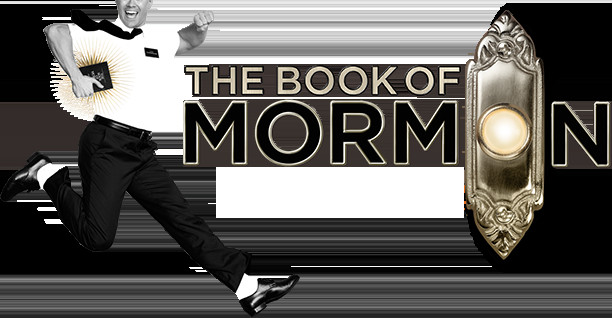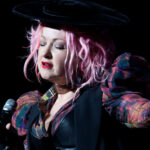Before diving into The Book of Mormon experience, many fans, like myself, get hooked on the soundtrack. It’s packed with catchy tunes and witty lyrics. What’s even more fascinating is how many of these Book of Mormon songs cleverly borrow from iconic musicals. Given the show’s satirical nature, these musical nods aren’t just coincidences; they’re deliberate comedic devices! Following the spirit of uncovering hidden gems, let’s explore the brilliant musical references woven into The Book of Mormon.
The Lion King’s Roar in Uganda
The references to The Lion King are so overt, they’re practically a safari stampede! Right from the airport scene, an African woman channels the iconic opening of “Circle of Life,” only to hilariously reveal she’s never actually set foot in Africa. Later, Elder Cunningham’s ecstatic reaction to their Uganda mission in “Two by Two,” complete with a “Lion King!” exclamation, is pure gold. His innocent question about “Hasa Diga Eebowai” mirroring “Hakuna Matata” perfectly encapsulates the show’s playful humor. It’s clear Elder Cunningham is a Lion King enthusiast, and the showrunners know their audience will catch these vibrant cues.
 main-mob
main-mob
Wicked’s Defiance Echoes in “You and Me (But Mostly Me)”
Wicked fans will instantly recognize the parallels, especially with the dynamic between Elder Price and Elder Cunningham mirroring Elphaba and Glinda’s contrasting personalities. But the song “You and Me (but mostly me)” takes the homage a step further, directly echoing “Defying Gravity.” The shared theme of “unlimited” potential and Elder Price’s self-centered “but mostly… ME!” mirroring Elphaba’s powerful “it’s ME!” are unmistakable. Musically, the similar bass lines and shared Db major key ending solidify this delightful wink to Wicked, enriching the layers within Book of Mormon songs.
A Chorus Line Steps into Mormon Hell
“Spooky Mormon Hell Dream” is a wild ride, visually and musically. Amidst the terrifying and hilarious depictions of Mormon Hell, a sudden jazzy interlude emerges, complete with top hats in a clear nod to A Chorus Line. The choreography and music during this section intentionally mirror “One,” with high kicks and synchronized lines. This unexpected shift into classic Broadway choreography within a hellish dream sequence showcases the range and wit present in Book of Mormon songs.
Hairspray’s Beat Resonates in the Finale
The finale, “Tomorrow is a Latter Day,” bursts with an infectious optimism that strongly resonates with Hairspray‘s closing number, “You Can’t Stop the Beat.” Both songs share the same upbeat tempo, rhythmic groove, and a similar structure of alternating solo and ensemble singing. These are feel-good anthems, radiating positivity and hope for the future, making the Hairspray influence in these Book of Mormon songs both clear and uplifting.
The Sound of Music Inspires “I Believe”
The spoken-sung sections of “I Believe” draw a direct line to “I Have Confidence” from The Sound of Music. Both songs feature protagonists psyching themselves up for daunting missions, Maria facing the von Trapp children and Elder Price heading to Uganda. Both songs are rooted in faith, with Maria as a nun and Elder Price as a Mormon missionary. Lyrical parallels like “to do the things I’d never dared” and “oh, what’s the matter with me” are present in both. Even the humorously adapted line about a warlord being less scary than children cleverly twists Maria’s original sentiment, highlighting the parodic skill within Book of Mormon songs.
Annie’s “Tomorrow” Echoes in “Orlando”
This might be a subtler connection, but Elder Price’s repeated vocal motif of “Orlando,” escalating to “I love you, Orlando,” carries a melodic echo of “Tomorrow, Tomorrow, I love you, tomorrow” from Annie. While potentially a more tenuous link, the similar phrasing and emotional delivery suggest a playful nod to Annie, demonstrating the deep well of musical theatre references the creators drew upon for Book of Mormon songs.
Sister Act’s Rhythm in “Two By Two”
Another subtle but distinct reference appears in “Two By Two.” During a section where the orchestra drops out, the cast creates a rhythmic clap accompaniment. This clapping pattern is identical to the rhythm in “Hail Holy Queen” from Sister Act. This rhythmic borrowing, though brief, adds another layer of clever musical referencing, enriching the tapestry of Book of Mormon songs with nods to diverse musical theatre traditions.
The Book of Mormon masterfully weaves these musical references into its fabric, creating a show that’s not only hilarious and original but also a loving tribute to the world of musical theatre. For those of us who revel in musical theatre trivia, spotting these homages within Book of Mormon songs adds another layer of enjoyment, making us feel like part of an exclusive, in-the-know club. So, next time you listen to the soundtrack, keep your ears open – you might just uncover even more musical secrets hidden within these brilliant Book of Mormon songs!

